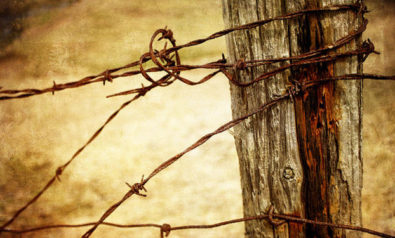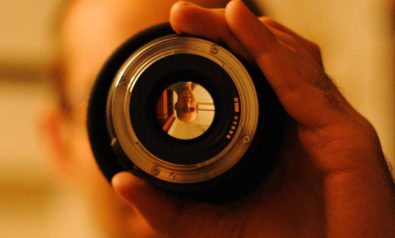Fabian Neuen interviews a Frenchman who has spent the last eight years in Frankfurt, about his observations on life in Germany.
Fabian Neuen: You are French but you have spent the last 8 years in Germany – how can this happen?
Michel Dupont: I arrived in Germany in January 2003 to finish my studies in a private business school near Koblenz. I drove in with a friend, the town was in a state of horror – the Rhine had overflowed up to some parts of the little village, we could barely find the traffic signs to drive to the school! I stayed there two years, with a hard workload. After graduation, I began to work in Frankfurt. Within one year, I had met my future wife, also in Frankfurt. Slowly, Germany was taking over my life – although my wife is Austrian. We married (in Tirol) and went back to Frankfurt – the town is conveniently located between Paris and Innsbruck, so we had no reason to change! Two years ago our little princess was born. Since then, and all in all, we have de facto gradually “settled” in Frankfurt…
FN: Why Germany?
MD: Very simple, I think I always had a link to Germany. My father is a German teacher; we have German friends with whom I used to spend a few weeks every year when I was 15 – 17. In 1999, I got a Rotary scholarship to study one year in Marburg, which I did, of course. After, when I was in my French business school, I went for a double degree with a partner university and that brought me back to Germany. You know the following…
FN: What can you tell us about Germany? What are the main differences from France?
MD: Good question! It is a bit like comparing cats and dogs, although French and Germans have more in common than the animals… Well, the thing that strikes me most since I am in Germany is the Germans’ (and Austrians’) need for explicitness. As a Latin/French speaker, you instinctively think and speak in terms of innuendo; in Latin cultures people understand themselves at half word. You have a strong recourse to implicit forms when expressing yourself. It is a strong cultural difference. For instance, when I arrived in Germany, nobody would laugh at my jokes; I was feeling depressed and lonely, after some time. My jokes typically were Latin humour, with a second or third degree that the Germans did not see at first, so it was not funny to them.
I think the Germans’ need for explicitness is correlated or has a causal link with their legendary risk-aversion. I see that also in my wife. Not surprisingly, Germans, Austrians and Swiss are the folks who buy most insurance policies in the world. They want to be sure. You can only do this if you express things objectively. Look at the Americans – they are quite similar to the Germans in the need for explicitness. The USA is a melting pot of numerous culture and societies, with a strong historic tradition of immigration, from the very beginning. With so many different backgrounds, you can only live in society if the rules are very explicit and very strong – Here you are, welcome to the USA.
And that’s fine, I mean, it is a necessity to live in society. So it is difficult to live with, but it has some advantages. In Germany, for example, I don’t worry as I would do in Marseilles when crossing a road or at a traffic light. I know the drivers know the rules, and the risk somebody breaks it is close to null. It makes life easier in many ways. It is just hard to get used to…
FN: What else?
MD: I think the capacity of the Germans to think for the group… It is a great quality. To us, French people, this is another world. French are an extremely individualistic folk. When I arrived in Germany, I typically was thinking very individualistically. I was amazed at how the German students would think for the group. I loved that right away and learnt a lot from them. And you see: the society in Germany is much more organised than in France, everything and everyone has a (defined!) place.
The drawback is the Germans’ difficulty in thinking “out of the box”. A German basically loves nothing more than seeing a cliché getting accomplished. They love it when a cliché takes place. They feel secure, in its predictability. It gives them a feeling of control and safety. If you read regularly the titles of Bild Zeitung, which is kind of “the folk’s voice” here in Germany, you will notice that. That means, this is what the folks want to hear, they need security, they need to feel safe… I find this revealing enough. Sometimes, it makes life a bit heavy, but nobody is perfect, and the grass is always greener in the neighbour’s garden…
FN: Do you notice differences in the way people work?
MD: Of course. The best example is probably a plain vanilla meeting. In Germany, when you have a meeting, each one comes prepared and the meeting makes the project move forward. In France, nobody prepares for a meeting, which has more of a social connotation or even function. So of course, it makes the project move forward, but maybe not at the same pace, or at least, not in the same way…
FN: Bekommt man nach all den Jahren das Gefühl, dass Du inzwischen ein Deutscher bist? (Do you get the feeling that you are now German after all these years here?)
MD: I don’t know. I think I am still quite French, and I strive to keep of my Frenchness (or) what I think is good in it. But I have made tremendous progress to adapt to the German lifestyle: explicity, not crossing the street when the light is red, coming prepared to meetings… I definitively am not anymore 100% French – when I come back to Marseille, people sometimes talk to me in English, assuming from the beginning that I am a foreigner, so there must be something about me that induces them to these thoughts…
FN: Anything you miss from France?
MD: Yes, a couple of things. People don’t drink wine for lunch. But I have got accustomed. And it’s nearly impossible to find real croissants…
FN: A conclusion on Germany?
MD: All in all, a much better quality of life, except for food. But for children, for your work, or to quickly make money, and a lot of other things in life, Germany is qualitatively much better than what I would have if I was in Paris. And the ICE (Inter-City Express; German high-speed trains) are much more comfortable than the TGV (Train à Grande Vitesse; French high-speed trains)… I am currently looking into getting German citizenship… (As I don’t need to give away the French one anymore…)
Support Fair Observer
We rely on your support for our independence, diversity and quality.
For more than 10 years, Fair Observer has been free, fair and independent. No billionaire owns us, no advertisers control us. We are a reader-supported nonprofit. Unlike many other publications, we keep our content free for readers regardless of where they live or whether they can afford to pay. We have no paywalls and no ads.
In the post-truth era of fake news, echo chambers and filter bubbles, we publish a plurality of perspectives from around the world. Anyone can publish with us, but everyone goes through a rigorous editorial process. So, you get fact-checked, well-reasoned content instead of noise.
We publish 2,500+ voices from 90+ countries. We also conduct education and training programs
on subjects ranging from digital media and journalism to writing and critical thinking. This
doesn’t come cheap. Servers, editors, trainers and web developers cost
money.
Please consider supporting us on a regular basis as a recurring donor or a
sustaining member.
Will you support FO’s journalism?
We rely on your support for our independence, diversity and quality.










Comment